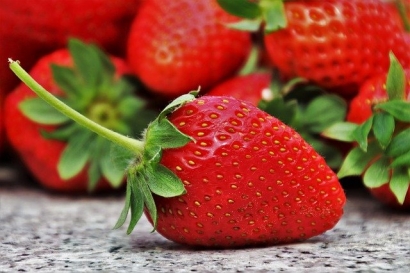
The CIAT units arearranged in a cascade design,and provide heating for 110,000 square metres of soft fruit crops produced by grower Hall Hunter Partnership, destined for sale in UK supermarkets. As a result of the additional renewable heating, fruit can be produced several weeks earlier than previously achievable, while reducing carbon emissions.
It is estimated that over the next 20 years the plant will save 44,000 tons of carbon emissions as compared with an equivalent gas-fired heating system.Following the project’s success, Hall Hunter is planning to install an additional 11MW of renewable heating.
The project, designed and installed by water source heat pump specialist Ebtech Energy Systems with equipment supplied by Cool Solutions Distribution Ltd, demonstrates Carrier’s capability to support innovative, low-carbon solutions as part of its Environmental, Social & Governance (ESG) Goal of reducing customers' carbon footprint by more than one gigaton.
Ebtech says it chose the HYDROCIAT units as they offer the highest energy efficiency, measured by Coefficient of Performance (CoP), available on the market. Performance is further enhanced by a bespoke controls package, developed jointly by Ebtech and CIAT,that regulates flow rates from the river through the evaporator circuits, to minimise electricity use by ancillary pumps.
Steve Ward, Ebtech Operations Director, said, “We have worked with CIAT heat pumps for several years now. The range is very wide and the equipment highly energy- efficient and reliable. Importantly, the cost per unit of heating delivered is very attractive, which helps reduce payback time on projects and ensure viability.”
Ward added, “CIAT UK isalso extremely knowledgeable about the application of equipment, and provides excellent technical back-up and support when needed.”
Brent Lawson, Managing Director of Hall Hunter Partnership, said, “We put great focus on sustainability and the environmental side of our business. There is a strong appetite for British-grown strawberries starting earlier and finishing later every year, and the new heat pump system enables us to meet this without heating our greenhouses with gas. As the new system is based on renewable energy, it has a very low impact on our carbon footprint.
“In addition, extending our growing season means we can produce 800 tons of strawberries during a time when they would normally have to be imported from Spain or Holland, reducing food miles travelled and providing a local supply of fresh fruit for British consumers.”

